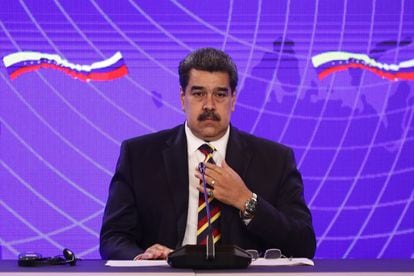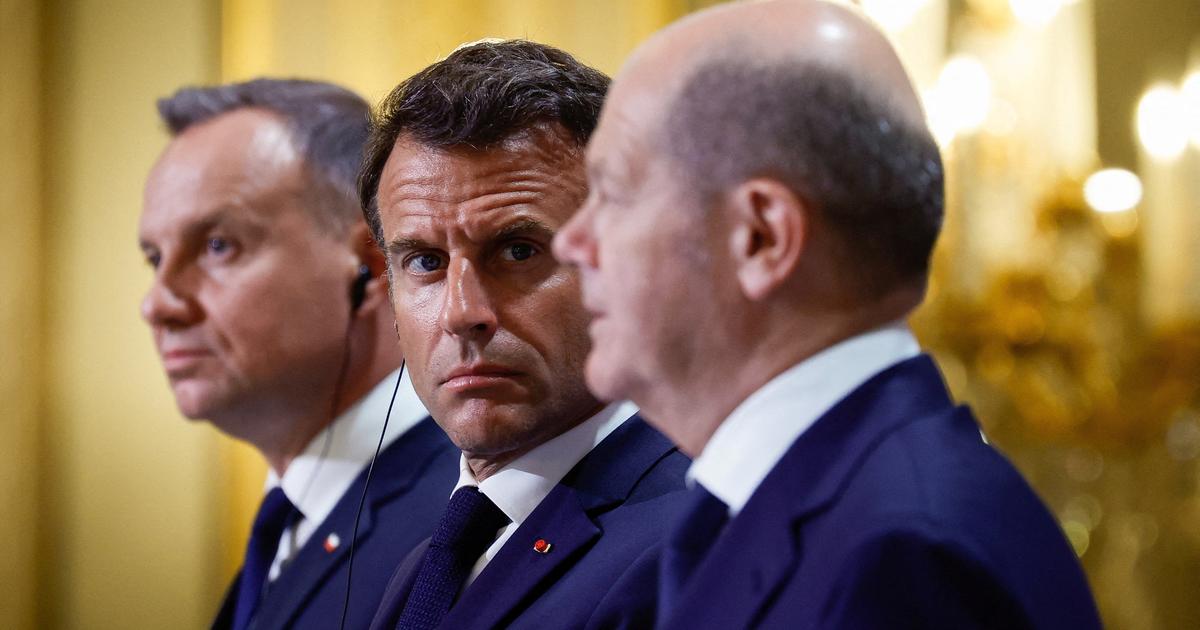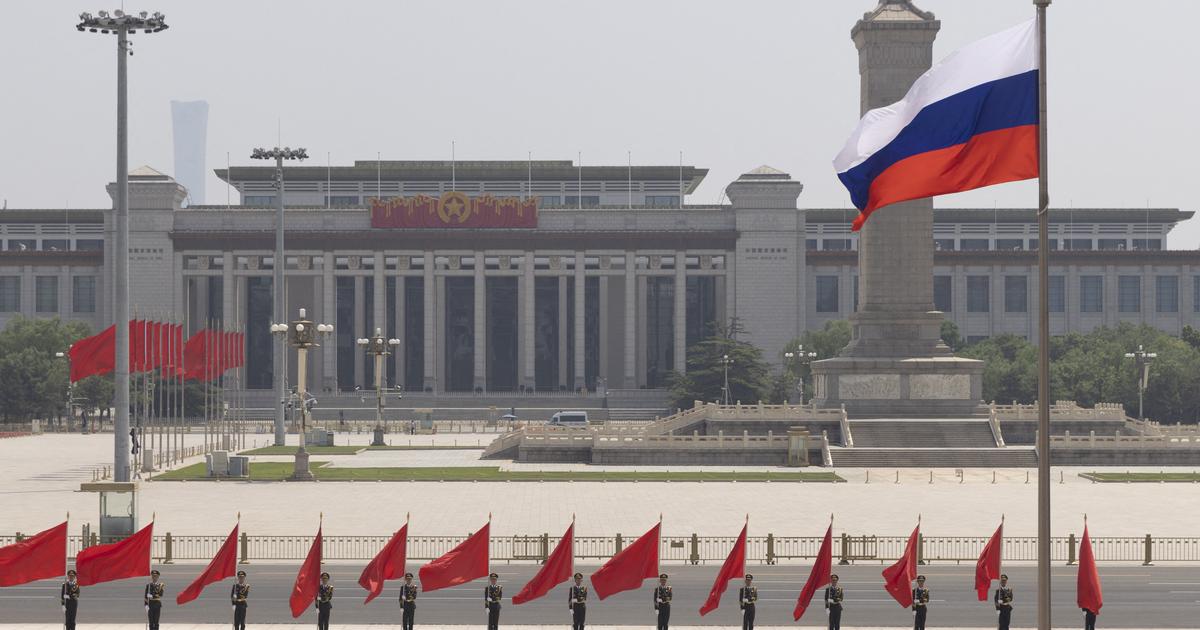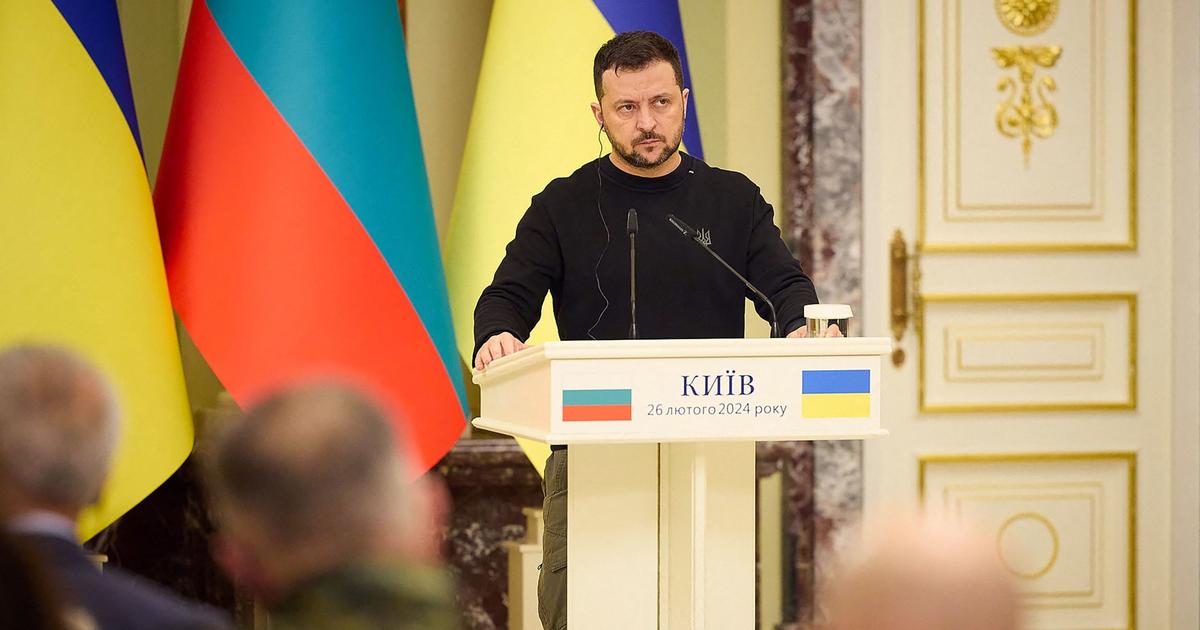The president of Venezuela, Nicolás Maduro, during the visit to Caracas of the Russian deputy prime minister, Yuri Borisov, on February 16. Rayner Peña R. (EFE)
Russia is closing ranks with its allies in Latin America, a region where it finds international support that it does not have in much of the world after the invasion of Ukraine.
The governments of Cuba, Nicaragua and Venezuela have aligned themselves with Moscow and have legitimized the military operation launched by land, sea and air this Thursday.
“What does the world want?
That President Putin sits with his arms crossed and does not act in defense of his people?” Nicolás Maduro – the most vocal among the Kremlin's allies in the region – questioned this Thursday in a television message in which he directly accused to the "American empire and NATO" of what is happening on the Russian-Ukrainian border.
Maduro's interpretation of the military decision taken by Vladimir Putin against Ukraine has been adopted without fissure by the leadership of the United Socialist Party of Venezuela.
The communicational apparatus of Chavismo maintains that the military deployment is “absolutely legitimate” and that it is Russia that has seen its jurisdiction threatened by “imperialist powers”, which forces it to defend itself.
“As President Nicolás Maduro has said, peace in Russia is peace in the world, said Foreign Minister Félix Plascencia on his Twitter account.
The vice president, Delcy Rodríguez, has in turn criticized the economic sanctions imposed on Moscow by Washington, while the government-controlled media repeat comments that call the government of Volodímir Zelenski “fascist”.
The government of Daniel Ortega has also endorsed its alliance with Russia and since last Monday applauded the Kremlin's decision to recognize the independence of the Donbas and Lugansk regions.
"This decision made by President Putin opens the possibility that this situation will not have a major outcome," Ortega said this week, in line with the Russian narrative on the conflict.
The Nicaraguan president criticized the sanctions imposed on Russia by Europe and the United States.
In the midst of the invasion of Ukraine, the president of the state Duma, Viacheslav Volodin, has visited Managua to meet with Ortega.
The president of the lower house comes from Cuba, where he thanked the support of the government of Miguel Díaz-Canel and expressed "his rejection of the interference in the internal affairs of Russia and the propaganda and communication hysteria."
"We highlight the excellent state of bilateral relations and the will to consolidate the high level of political dialogue and exchanges in various sectors," said Díaz-Canel.
The “neutrality” of Mexico and Brazil
The war conflict in the far east of Europe has moved the geopolitical chessboard to Latin America, despite the fact that it takes place thousands of kilometers away.
The region has two non-permanent members of the United Nations Security Council: Mexico and Brazil.
"We are not in favor of any war," Mexican President Andrés Manuel López Obrador said on Thursday.
His government has said that the position of the North American country is "very energetic in favor of peace, of a peaceful solution, of politics instead of force," according to a statement from the Ministry of Foreign Affairs, which anticipates a “more specific” position as soon as there is a draft declaration from the Security Council.
Mexican Foreign Minister Marcelo Ebrard has said that a break in relations with Russia is not contemplated and has indicated that the priority is to guarantee the safety of some 200 Mexicans in Ukraine.
"There is a group that is heading to be evacuated to Romania and another 50 people who have communicated in the last few hours," Ebrard commented.
"We are looking at how we can support them to move from Kiev."
Brazil has spoken through its diplomacy and its vice president, although the president, Jair Bolsonaro, remains silent.
The Foreign Ministry has called for "the immediate cessation of hostilities and the start of negotiations leading to a diplomatic solution."
His note expresses concern, but does not explicitly condemn what he describes as "military operations of the Russian Federation against targets on the territory of Ukraine."
A week after Bolsonaro visited Putin and expressed his solidarity, Brazil is seeking a complex balance so as not to displease Russia or the US.
Nothing new for a country that was among the neutrals in the Cold War.
Sooner or later he will have to further define his position as the sessions of the UN Security Council progress.
Bolsonaro, meanwhile, buys time.
The president has ignored the news of the day in his public messages, although the war may impact the economy (for better and worse) since Brazil has a large community of Ukrainian descent.
The vice president, Hamilton Mourão, has instead been forceful.
For Mourão, a general in the reserves, sanctioning Russia is insufficient.
He believes that a military response is needed because “the Western world is like in 1938 with Hitler.
Putin does not respect appeasement."
Former President Lula da Silva, leader in the presidential polls, has been lukewarm.
He has criticized wars to resolve differences between countries and also the powers that undertake invasions without mentioning the aggressor or the attacked country.
Chile has unreservedly expressed its rejection of the armed attack against Ukraine.
“Russia has chosen war as a means of resolving conflicts.
From Chile we condemn the invasion of Ukraine, the violation of its sovereignty and the illegitimate use of force”, President-elect Gabriel Boric wrote on his social networks.
"Our solidarity will be with the victims and our humble efforts with peace," he added.
The right-wing Sebastián Piñera, who will leave the presidency on March 11, called for an international cooperation effort to find a negotiated solution.
After several days without making a statement, Argentina has broken its silence on the escalation of the war in Ukraine to join the condemnation of the "use of armed force" by Russia.
“Just and lasting solutions can only be achieved through dialogue and mutual commitments that ensure the essential peaceful coexistence.
For this reason, it calls on the Russian Federation to cease military actions in Ukraine,” the Argentine Foreign Ministry said in a statement.
The government of Peronist Alberto Fernández has also demanded "that all those involved act with the greatest prudence and de-escalate the conflict in all its aspects right now to guarantee peace and comprehensive security for all nations."
The reaction of the Argentine Government shows the blow that the attack on Ukraine represents for Russian diplomacy in South America.
In early February, Fernández traveled to Moscow and met with Putin, to whom he offered Argentina to be his "gateway to Latin America."
The good relationship between the two countries was also evident during the pandemic, when Argentina was the first country in the region to bet on the Russian Sputnik V vaccine and then began to produce it on national territory and exported it to other countries, such as Bolivia.
The Luis Arce government has opted for a more neutral position.
"Bolivia calls for peace and urges the parties to seek political-diplomatic solutions within the framework of International Law and the Charter of the United Nations," the Bolivian Foreign Ministry said in a statement.
“Colombia categorically rejects the premeditated and unjustified attack that has been perpetrated against the Ukrainian people by Russia, which not only undermines its sovereignty but also threatens world peace,” said the president, Iván Duque, in a recorded speech.
In Central America, Costa Rica stated that it "condemns the use of force and the violation of the sovereignty and territorial integrity of Ukraine", while the Government of Honduras has called in recent days to find a negotiated solution.
“We are in the Security Council in one of the most severe crises in recent times, for many since World War II,” comments Enrique Berruga, Mexico's ambassador to the UN between 2003 and 2007. “For Latin America it would be It is sensational to have a unified position in relation to this conflict, but terrible fractures persist,” says Berruga in the face of the differences that persist between the main countries of the region, although he assures that there is ground to work on a joint action that has a greater impact on the system. international.
In the background of the dispute between the powers, the region is following the development of the conflict step by step in the face of possible economic impacts, in a complex balance between internal and foreign politics, and with a narrow margin of maneuver in the international system.
Subscribe here to the EL PAÍS América newsletter and receive all the key information on current affairs in the region








/cloudfront-eu-central-1.images.arcpublishing.com/prisa/MGXQCRPVF5E7IC2XTMDAP6ZWZ4.jpg)






